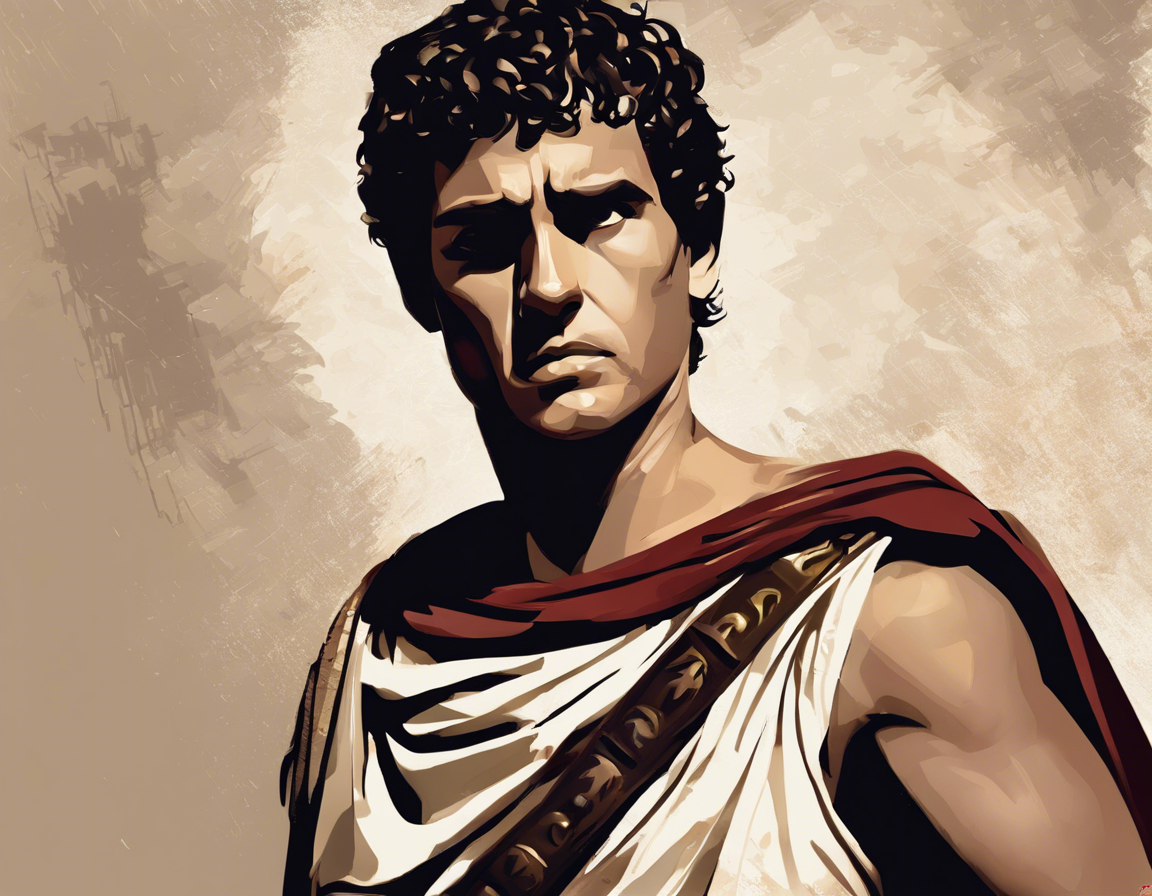Introduction
In the grand tapestry of ancient history, few figures have captured our imagination and fascination as much as Mark Antony. Known for his military prowess, political acumen, and passionate love affair with Cleopatra, Antony’s life was a whirlwind of ambition, betrayal, and tragedy.
Early Life and Military Career
Born in 83 BC into a prominent Roman family, Antony was destined for greatness from an early age. He quickly distinguished himself as a skilled soldier, serving under Julius Caesar in Gaul and rising through the ranks to become one of Caesar’s most trusted generals.
Antony’s crowning achievement came at the Battle of Actium in 31 BC, where he and Cleopatra’s forces were decisively defeated by Octavian (later known as Augustus). This marked the end of Antony’s dream of ruling the Roman world alongside Cleopatra and plunged him into a downward spiral that would ultimately lead to his demise.
Political Intrigues and Betrayals
Throughout his career, Antony navigated the treacherous waters of Roman politics with a mix of cunning and ruthlessness. After Caesar’s assassination in 44 BC, Antony formed the Second Triumvirate with Octavian and Lepidus, effectively dividing the Roman Republic among themselves. However, Antony’s alliance with Cleopatra and his brazen ambition to rule the East as a king drew the ire of Octavian, who saw him as a threat to his own power.
The stage was set for a dramatic showdown between the two rivals, culminating in the Battle of Actium and Antony’s eventual defeat. His alliances crumbling and his forces scattered, Antony and Cleopatra chose to take their own lives rather than face the humiliation of capture.
Legacy and Cultural Impact
Despite his ultimate failure, Mark Antony remains a complex and compelling figure in popular culture. From Shakespeare’s tragic play “Antony and Cleopatra” to modern film adaptations, his story continues to captivate audiences with its blend of romance, betrayal, and political intrigue.
In cinema, Antony has been portrayed by actors ranging from Marlon Brando to Richard Burton, each bringing their own interpretation to this larger-than-life character. Whether depicted as a heroic martyr or a flawed antihero, Antony’s legacy endures as a cautionary tale of the perils of unchecked ambition and the intoxicating allure of power.
FAQs
- Was Mark Antony a real historical figure?
-
Yes, Mark Antony was a real historical figure who played a pivotal role in the transition from the Roman Republic to the Roman Empire.
-
How did Mark Antony die?
-
Mark Antony died by falling on his own sword after hearing false reports of Cleopatra’s suicide. Cleopatra, learning of Antony’s death, later took her own life as well.
-
What was Mark Antony’s relationship with Cleopatra like?
-
Mark Antony and Cleopatra were involved in a passionate love affair that was both romantic and politically strategic. Their union ultimately proved to be both their downfall and a testament to their undying devotion to one another.
-
What impact did Mark Antony have on Roman history?
-
Mark Antony played a significant role in the power struggles of the late Roman Republic and the rise of Augustus (Octavian) as the first Roman Emperor. His defeat at the Battle of Actium marked the end of the Roman Republic and the beginning of the Roman Empire.
-
How is Mark Antony remembered in modern culture?
- Mark Antony is often portrayed as a tragic figure in modern culture, symbolizing the dangers of unchecked ambition and the consequences of political intrigue. His story continues to inspire writers, filmmakers, and artists to this day.
